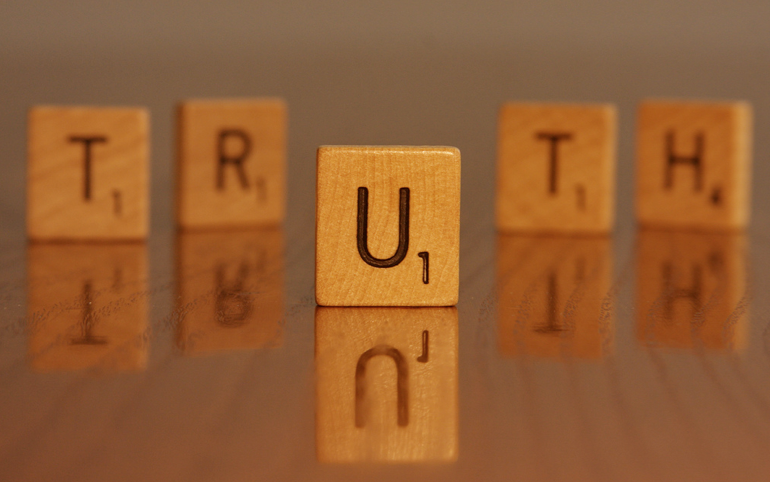Is There Such Thing as Truth? - A Slightly Spiritual Perspective
- BeaCrystalClear 11
- Nov 10, 2016
- 3 min read
Truth exits in everyone and everything. In a factual form, of physical evidence and logic. Yet our interpretation of the world around us, our ideas and what we associate a truth with, is not real. Also, even our memory of an event, and the understanding we have of an event is not true. Our reality is an interpretation and a perception on truth. Based on our past experiences, what we learn from over around us and our expectations of the world based on beliefs is how we interpret truth. Essentially anything and everything means something slightly different to everyone. In today’s clarity blog, we will be exploring a lightly more psychological understanding of truth with a slight spiritual or metaphysical twist. This blog is almost guarantee to change your perception of truth .
To get straight to the point there I such thing as truth in a factual understanding, evidence and logic. Yet the truth is very shallow, we receive factual truths such as ‘the dining table is made out of oak’, but that means nothing, a blank statement of truth. It is how the brain interprets that fact is what is what distorts that evidence, what ‘the dining table is made out of oak’ means to an individual. Whether we associate ‘the oak dining table’ to you means it’s expensive and precious, or old fashioned, very sturdy and reliable. Our brains interpret every truth around us, and associates it with some meaning. The association and interpretation of a truth is where the statement becomes more than just a truth. For instance, ‘the oak dining table’ is not ‘Sturdy’ or ‘old fashion’ since that’s only an opinion. The ’oak table’ is not new or old fashion, neither is it stable or weak because it is simply a table.

The main factors which affect our interpretation of the world and ourselves is our early experiences and the models which influenced our behaviour, our core beliefs and ideas of this world. The core beliefs we have are not just what religion we follow, or what we identify as, it’s what you identify yourself as. Whether you view yourself as being moral, reasonable and assertive. Enough factor would be the ideas and influences we have. And what we choice to pay attention to, whether we prefer to look at the more cynical sides, or try to keep up to date with everything or try to remain optimistic. Those all effect our perceptions even if were not wear of it. All of those statements of self-identifications are not true either, in fact at a factual level, we are all human. We all have the same hormones, and mental capacity’s and slightly different brains. But it is those processes of developing a self-identification, learning who you are compared to everyone around you. We base ourselves on our core beliefs, how perceive the world around us and what we choice to pay attention to. We all are learning what it means to be human, what dose being you mean. We interpret the truth that we are human and build self-identity from that truth.
Our memory all go through the same process of interpretation, we interpret events and situations which take place in our lives and create meaning behind hem essentially making quite a lot of our memory false. That’s because we usually forget a good 80% of our memory after 24hrs. The rest of our memory is built by our expectations and mental schemers. Which are the information we have stored about the world, our lessons and expectation of the world. So, in truth our eyewitness accounts are not reliable. To conclude, there is power in the knowledge and understanding of truth. Meaning every truth is interpreted subjectively and anything can mean anything. Our memories are altered. And we identify as is not true either, yet. There is nothing wrong with this process of interpretation and association with truth, since it’s what prevents reality from being bland. There is no fun in ‘the oak dining table’, and that table can mean anything to anyone. And have the potential to be interpreted, judged and associated with other meanings a agendas. Even if it is mundane.






Comments